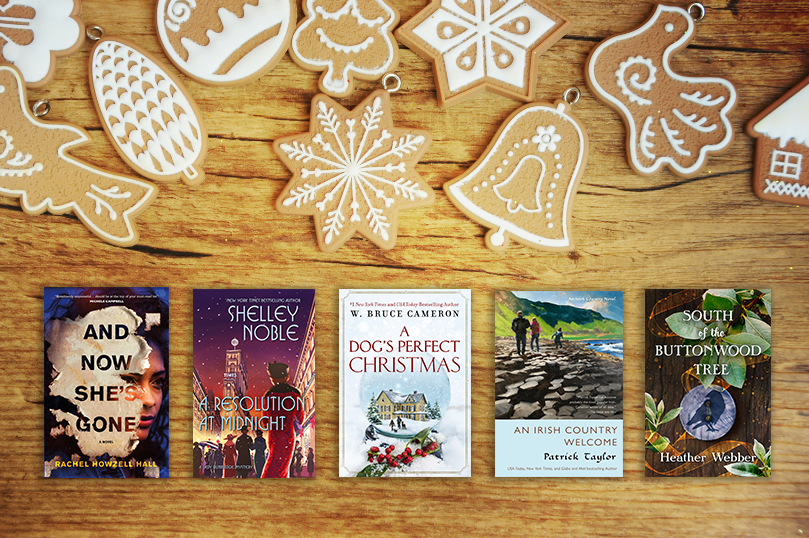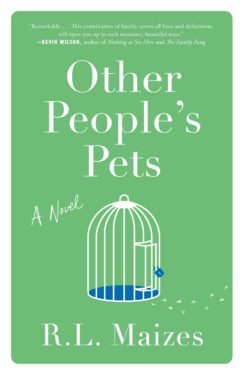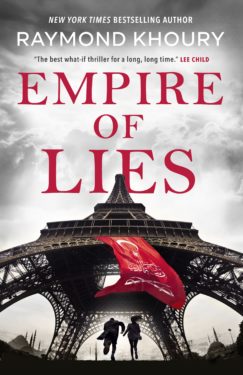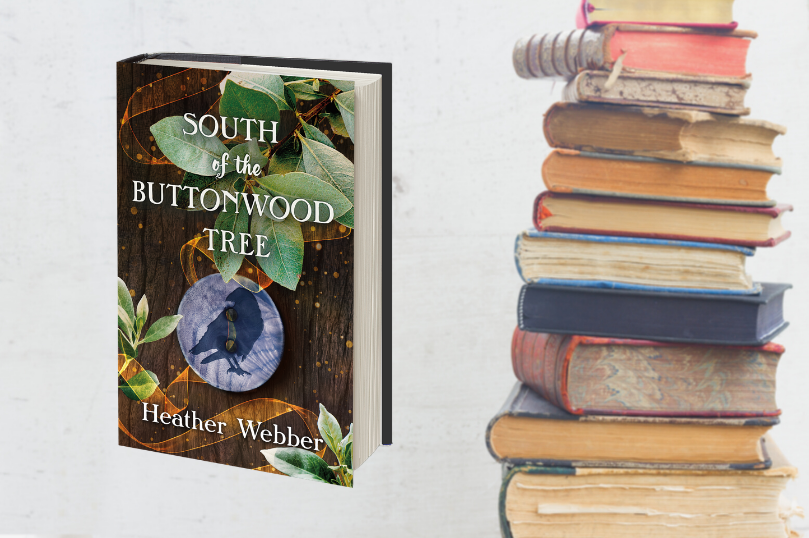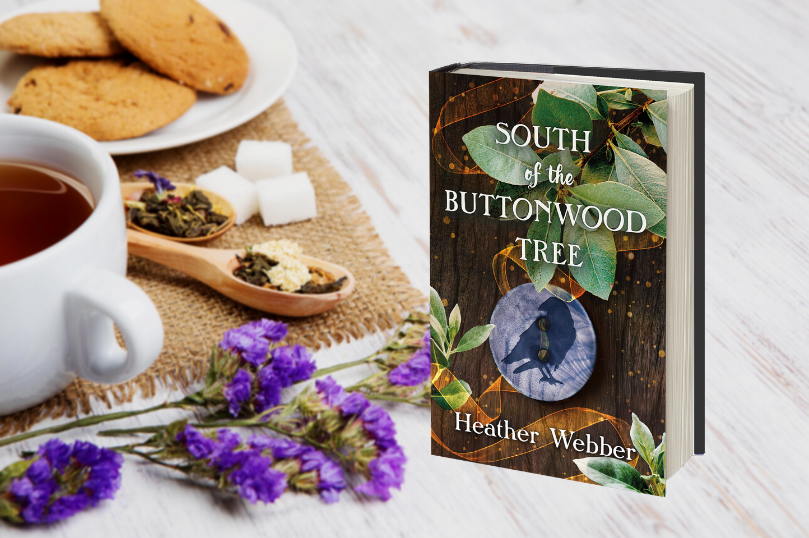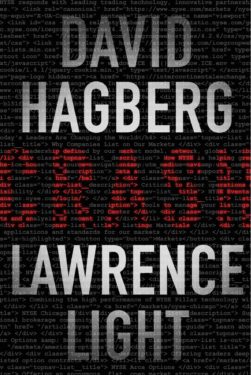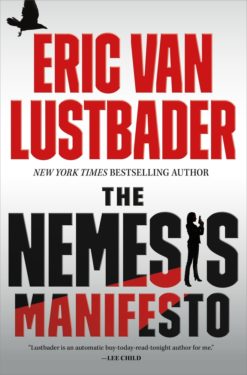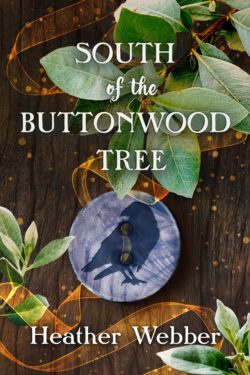opens in a new window opens in a new window
opens in a new window opens in a new window
opens in a new window opens in a new window
opens in a new window opens in a new window
opens in a new window
opens in a new window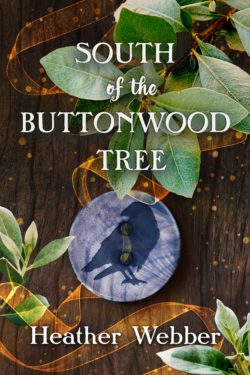
USA Today bestselling author Heather Webber’s South of the Buttonwood Tree is a captivating blend of magical realism, heartwarming romance, and small-town Southern charm.
Blue Bishop has a knack for finding lost things. While growing up in charming small-town Buttonwood, Alabama, she’s happened across lost wallets, jewelry, pets, her wandering neighbor, and sometimes, trouble. No one is more surprised than Blue, however, when she comes across an abandoned newborn baby in the woods, just south of a very special buttonwood tree.
Sarah Grace Landreneau Fulton is at a crossroads. She has always tried so hard to do the right thing, but her own mother would disown her if she ever learned half of Sarah Grace’s secrets.
The unexpected discovery of the newborn baby girl will alter Blue’s and Sarah Grace’s lives forever. Both women must fight for what they truly want in life and for who they love. In doing so, they uncover long-held secrets that reveal exactly who they really are—and what they’re willing to sacrifice in the name of family.
opens in a new windowSouth of the Buttonwood Tree will be available on July 21st, 2020. Please enjoy the following excerpt.
Chapter One
“You’d be a dang fool to let her keep that baby. It should go to a loving home.” Oleta Blackstock slapped her hand on the desk, nearly knocking over a pitcher of ice water with her bony elbow.
In his chambers, Judge Quimby pressed his fingers together under his double chin and tried to keep his expression neutral as he studied Oleta’s orange pillbox hat. Mocking gravity, it perched on the side of her head, as defiant and stubborn as she was.
Oleta leaned forward. Coal-black eyes burned with conviction as she said, “Blue Bishop wouldn’t know loving if it jumped up and hit her upside the head. I don’t care one whit what that button said. You know the right decision to make, Judge, seeing as how you know the Bishop family better than anyone. Even better than me.”
Good God almighty he knew the Bishops, all right.
He also knew anyone who truly cared about the infant or her welfare wouldn’t call her “it.”
Blue
It was the kind of day in Buttonwood, Alabama, where trouble slipped into town with the breeze, jarring awake sleepy springtime leaves on the massive oaks and sky-high hickories.
It scraped parched dirt, sending dust skittering along the trail like it was running for cover. It whistled its warning, plain as day to anyone who cared to listen.
If anyone could recognize the cautionary tune, it was me.
I was a Bishop after all. My family name was practically synonymous with the word trouble. Daddy, Twyla, and my three brothers had embraced trouble like long-lost kin, consequences be damned. And look where that had landed them—each now dead and buried.
I’d done my best for most of my twenty-nine years to avoid trouble at all costs. It was the last thing on earth I wanted, and feeling it swirling around now set my nerves to jumping. I hated any kind of conflict, and my younger sister, Persy, all but personified the term Goody Two-shoes.
Bishop black sheep, both of us.
“What’s wrong?” Marlo Allemand asked as she hiked up a billowy maxi skirt to high-step over a fallen log on the dirt path that led to the Buttonwood Tree, which marked the halfway point on the trail that curved around the town.
I hadn’t realized I’d stopped walking. “Just sensing a bit of trouble in the air all of a sudden.”
“Best just to ignore it,” she said. “Like always.”
The long, dark shadow of trouble had followed me my whole life. Teasing. Taunting.
Humiliating. I snapped a sunny dandelion head from its stem and tossed it into a tin pail to join a small pile of other blooms that had suffered a similar fate.
I wiped my hands on old jean shorts, leaving behind a dandelion-yellow streak on the threadbare denim. It was that yellow color I had been searching for out in these woods this morning. Back at home in my art studio, I’d transform the decapitated dandelion into ink, along with any other flowers, roots, nuts, and bark I found.
Those weren’t the only items I was looking for out in the woods this morning, however. I was always and forever on the hunt for . . . something else. Something I couldn’t identify. Something I’d been searching for my whole life long, pushed along by the hands of an insistent wind that was always seeking the lost.
Following its lead, I had a knack for finding things. Watches and wallets and Moe, Marlo’s husband, who tended to wander. It was a skill I didn’t fully understand since I had no control over it, but I couldn’t argue it came in handy once in a while. But as of yet, that unique ability hadn’t led me to the one thing I’d been looking for . . . forever. The thing that drove these adventures into the woods. The thing that gnawed my soul and made me restless.
The lost thing that had no name.
I had the feeling the wind would let me know what it was when I found it, but as of yet I’d had little luck.
So I kept looking. Turning botanicals into inks to supplement store-bought art supplies was a great excuse to wander the woods most mornings. I was a children’s picture book author and illustrator, and I was grateful for any escape into my fictional world. I was almost done with another book in my popular series about a young, headstrong but shy rabbit who, like me, could find things, though her adventures were much more fun. In the book I was working on, Poppy Kay Hoppy would rather ballet dance than take a hip-hop class like the other rabbits, and it was near impossible to think about my worries while drawing a tutu-wearing bunny.
Marlo and I walked in comfortable silence for a while before I said, “I got a call last night about someone wanting to look at the farmhouse. Sarah Grace Fulton.”
With every step she took, Marlo’s hiking sandals and a glimpse of her vibrant-red toenails peeked out from the bottom of her skirt. “Well, isn’t that interesting.”
“Mighty. I gave her the code for the lockbox—she’s looking at it today.”
I’d been trying to sell the family farmhouse for more than a year now, but showings were few and far between. Its value had plummeted in the decades my family had lived there, and even though I was selling it as a “for sale by owner” at a rock-bottom price, no one had made a single offer on the house, lowball or otherwise. I could hardly blame potential buyers. I didn’t want to live there, either. I had moved out as soon as I could afford a place of my own six years ago.
A twig cracked loudly from within the woods, and Marlo and I both pivoted toward the noise. Something moved at a quick pace through the densely packed trees and brush.
“Deer?” she asked, squinting into the shadows.
“I’m not sure.” The woods fell quiet as if they, too, were listening. After a moment, the birds began singing again, the bugs buzzing. Whatever had caused the snapping twig was gone now.
Marlo picked up the conversation. “I have a good feeling about the showing. That house only needs one person to see its full potential.”
Cicadas droned as I plucked another dandelion and grinned. “Or it needs a wrecking ball.”
Her dark skin glistened in the dappled morning light as she swatted at me, but there was a smile on her face. “Better to fix it up than knock it down. It’s got good bones, that house. Seems to me Sarah Grace is the perfect buyer.”
Good bones but a sordid history. My daddy, Cobb, had won it in a card game. Cheating at cards, though no one could ever prove it—and many had tried. “I hope so, because I could surely use the extra money.” I held up a hand. “And before you ask, no I haven’t made the phone call to the adoption agency yet.”
Marlo lifted the brim of her floppy straw sun hat, smoothed curly charcoal-gray hair streaked with strands of silver, and swatted a gnat away from her ear. A thin, judgmental eyebrow arched.
“I’ve been busy. My book is due in a few weeks. And with Persy being home from college for the summer . . .”
My sister had finished her freshman year of college at the University of North Alabama two weeks ago. After Twyla—my mother had always insisted her children call her by her given name—had died two years ago, I’d been granted legal guardianship of eighteen-year-old Persy, though that label had been a technicality at best. I’d always been Persy’s caregiver.
Since the age of adulthood in Alabama was nineteen, she was my legal responsibility for another six months, but my house would always be her home for as long as she wanted to live with me. We were all the family we had left.
For now, at least.
More than anything, I wanted to grow my family, which was no easy task as a single woman with a fluctuating income. After more than three years of waiting to adopt an infant through the state, I had decided working with a private adoption agency was my best option at becoming a mama. I’d scrimped and saved to be able to afford the pricey fees, but now that I almost had enough saved up, I’d been dragging my feet on setting up the formal, in-person consultation.
Marlo’s lips, tinted a deep red, pursed. “Mm-hmm.”
She knew me too well, having pretty much raised me. She and Moe were both in their midseventies and were the grandparents Persy and I had never had, all but adopting us into their childless family nearly eighteen years ago, after Twyla had first sent us into the
Allemands’ children’s bookshop, The Rabbit Hole. I’d been eleven years old and Persy just one.
We’d been in need of rescuing.
And the Allemands had saved us, plain and simple.
The Rabbit Hole was my happy place. There, among the colorful books and the kindness of Marlo and Moe, I’d found an escape from reality, a safe haven. A home. The shop was warmth and love and happiness.
I scrunched my nose. “All right, okay, fine. I’m scared to get the private adoption process started. What if no birth parents choose me? What if they want someone with a huge circle of friends . . . ?”
Previous feedback from state social workers strongly suggested I, especially as a single woman, get out more, become a “thread in the fabric of the community.” The whole it takes a village mentality made me slightly queasy. My chest tightened as I thought of all the years in school when no one would sit with me at lunch or play with me at recess. I’d never hung out with friends, had a sleepover, or gone to any school dances. Even now, other than Marlo, Moe, and Persy, I had no close friends. If I’d had a choice, I’d have moved away a long time ago. A new town. A fresh start. A bright future. The past buried here in Buttonwood. Buried deep.
But I didn’t have a choice. Not yet. As surely as the wind pushed me along, it also held me back, keeping me tethered to Buttonwood like a small bird in a big, pretty cage. Until I found the lost thing with no name, I was free to roam—but only within the confines of my ornate prison.
Marlo clucked softly. “If you let it, fear will always hold you back. Stand in your own light, Blue Bishop. Stand strong. Because I know that if you allow people to get to know you, they’ll love you, same as I do. Opening yourself up, being you, is the only way to get what you want most in the world.”
Stand in your own light. It was a favorite phrase of Marlo’s, heard as often at the bookshop through the years as “thank you,” “come again,” and “the bathroom is down the hallway on the right.”
I tried to stand in my own light, truly I did, but it was easier said than done. She didn’t know what it was like to be a Bishop, every move under intense scrutiny, painted with the same crooked brushstroke as the rest of my family. My light had been dimmed by the bad choices others had made.
“And don’t you dare tell me that opening up is easier said than done,” she went on. “Because Persy has proven that point to be invalid. This town doesn’t have an issue with you being a Bishop—most let that go a long time ago. You have an issue with you being a Bishop, and you’re clinging to it as an excuse for your self-imposed exile, my shy, sweet girl.”
I kicked another rock. This was a conversation we’d had a million times. Maybe more.
“You haven’t had a good reason to change your hermit-like habits before. But now you do. You have the best reason of all: motherhood. Besides,” Marlo added, “you don’t really want to be cursed do you?”
I glanced ahead, toward the Buttonwood Tree, its upper canopy barely visible from this spot on the trail. According to local legend, the tree had come to be more than a hundred and fifty years ago after a woman named Delphine had warned her husband and son to delay their hunting expedition because of a storm rolling in. They hadn’t heeded her advice and ventured into the woods, where they were struck down when lightning hit the tree they’d taken shelter under.
The grief-stricken woman sat so long in the woods where her loved ones had perished that she slowly transformed into a sycamore tree, known as a buttonwood tree in the olden days for the buttons produced from its wood. The Buttonwood Tree grew strong, fertilized by her broken heart, and her determination to prevent others from heartache had morphed into a small crow, almost ethereal in its luminous appearance, that led people in need of guidance to the tree. The tree’s buttons had counseled many. But if people didn’t listen to the advice . . . there was a steep price to pay.
While the Buttonwood Tree’s buttons were made of wood, what was written on them was set in stone. If you asked advice from the tree, you’d best be ready to accept the counsel given. To defy the tree’s guidance was to bring on everlasting unhappiness, a curse for ignoring the tree’s wisdom.
I had gone to the Buttonwood Tree a few months ago, brokenhearted after continually being passed over to adopt a newborn. I’d needed reassurance that I was making the right decision in continuing my adoption quest, even at the risk of being hurt again and again. The Buttonwood Tree’s answer had given me strength to place the initial call to the private adoption agency.
Love is worth the risk. Love is life.
I swallowed back a rush of emotion. It was true that I didn’t want to be cursed by not heeding my button’s advice and following through with my adoption plans, but more than that, I longed to be a mama, to have a family of my own to love, to raise up right and proper in a house full of happiness. “I’ll call the agency as soon as we get back.”
“And you’ll start coming with me to Magnolia Breeze again? Mary Eliza Wheeler’s been asking for you.”
Magnolia Breeze was the nursing home and rehab center where Marlo volunteered every Monday night. I’d gone along with her a couple of times, but the facility had proven to be too close to home for comfort—several of the patients there had recognized me and wanted to gossip about my family’s history, especially the bank robbery that led to the deaths of two of my brothers and sent nearly a hundred thousand dollars up in flames. A topic I most certainly had not wanted to talk about.
“Why? To finish the tongue-lashing she gave me last time?” Mary Eliza had all but cussed me straight out of the room. Marlo and the nurses had tried to tell me it was due to the brain injury Mary Eliza had suffered after a heart attack last year had deprived her of oxygen. But I knew better. She had never liked me or my family one little bit. Heathens, she’d called us among other things. For having been a preacher’s wife, she was the most judgmental person I’d ever come across. How her son, Shep, a local cop, had turned into an all-around good guy, I had no idea.
“Maybe she wants to apologize for her previous behavior.”
I wrinkled my nose. “Thanks all the same, but I think I’ll pass. I don’t really want to get her riled up again. She has a bad heart, remember?”
Marlo crossed her arms. “Threads, Blue honey. Threads.”
In my head, I could practically hear the adoption agency denying my application because I was a loner. I took a deep breath. Through clenched teeth I said, “All right, I’ll go.”
She looped her arm through mine and said, “And so cheerful about it! I can hardly wait for the residents to bask in your exuberance.”
I pasted on a wide, fake smile. “I’d be delighted to go.”
She laughed, a true laugh that nudged aside my dread and let in a sliver of happiness.
“Thursday at six it is, then. And, honey, if you have to fake it until you make it, I’m okay with that.”
“Thursday? Not tonight?” I asked, not the least bit upset with the reprieve. Only curious, as Marlo had been trying to stick to a tightly controlled schedule since Moe’s diagnosis. Magnolia visits took place on Mondays. Always.
“I have a late meeting tonight, so I had to reschedule to later this week.”
I gave her a sideways glance. “Another mysterious meeting? It’s the third in a month.”
“It’s not mysterious at all.”
“Really? Who’re you meeting with?”
“Someone.”
I smiled. “About what?”
“Things.”
“Oh, I see. That’s as clear as a mud puddle.” As we neared the clearing surrounding the Buttonwood Tree, the wind picked up, and the trouble mixed in with it taunted me. I stiffened. Suddenly nervous, I said, “Wait. The trouble in the air doesn’t have something to do with you, does it?”
“Me?” She pressed her hands to her chest and her eyes widened theatrically, as if she were reading aloud Where the Wild Things Are to a group of preschoolers. “Why would you think such a thing?”
I stopped midstep to look at her. “Your faux outrage, for one. And for another, your mornings with Moe are all but sacred. Yet, you’re out here with me.” He was at his best in the mornings. Nighttime was when he tended to lose his way, dementia leading him to places only he knew.
Before she could reply, a keening caw pierced the air. A glossy crow glided over the treetops.
Marlo’s gaze followed the bird as she asked, “Are you in need of a button?”
“Not me. I’ve asked my one question this year. You?” Buttonwood Tree legend also stated that only one question could be asked of the tree per year, and I could understand why. Otherwise, people would constantly be trekking to the tree to seek help with every little decision.
“No,” Marlo said. “All my big decisions have been made already. Odd that the crow is calling out, since it’s rarely seen unless leading someone to the tree for counseling. Let’s see what’s going on, shall we?”
She strode over to the hollow in the Buttonwood Tree where flat, smooth buttons appeared after someone asked the tree’s advice. “Empty,” she said, peering into the crevice notched by nature into the mottled trunk, the bark a patchy mix of smooth and rough. She bent to look into the wide rabbit hole beneath the tree.
In all my years, I’d never seen a single rabbit emerge from it, though I looked every time I passed by the tree, endlessly hopeful. The tree’s shallow root system had broken the ground’s surface, creating a wide maze of twisted, outstretched arms, so vast and intertwined that it was hard to tell where each arm had originated. I watched my step so I wouldn’t trip on a root as I walked over to her.
“C’mon, Marlo, tell me what’s going on with you. You’ve been acting strangely for a few weeks now. Secret meetings and the like. Is it about Moe?” My heart nearly dropped straight out of my chest at the mere thought. “Is he worse than we think?”
She put her hand on my arm, settling me. Soothing me. “Don’t go getting all worked into a tizzy. Moe’s health is no better, no worse.”
At her touch, I immediately calmed. “Then what?”
Inhaling deeply, she shot a look up the trunk of the Buttonwood Tree, then said, “It’s the shop.”
“The Rabbit Hole? What about it?” The bookstore had been named for the hole we stood next to, and Marlo often referred to her smallest customers as her “little rabbits.”
“There are going to be some transitions. Starting tomorrow I’m going to need your help more than ever.”
Even though I made a good living with my books, I still worked at the bookshop part-time, at least once a week. Partly to help out Marlo, especially now that Moe was unable to work; partly to be around all the kids who didn’t care a bit that I was a Bishop; and partly because the store was my happy place, where my every worry seemed to fade away.
“Of course. You know you can count on me. What kind of transition are you talking about?”
“Since Moe has doctor appointments every morning for the rest of this week, I’m going to need you to train someone new,” she said. “You’re the only person who knows the shop inside out like I do.”
“You hired a new employee? Oh, I’m so glad, Marlo. It’d be nice if you could scale back your hours. You’ve been running yourself ragged, between caring for Moe and the store and with the Buttonwood Festival coming up . . .”
The festival was the town’s biggest event of the year. There would be a parade, carnival rides, baking competitions, a petting zoo, food booths, vendors, and artisans. The Rabbit Hole’s tent would have hourly story time, balloon animals, face painting, and refreshments.
Marlo took my hand, holding it tightly, and drew in a deep breath. “It’s not a new employee.” Pulling her shoulders back, she stared at me with a shiny, determined gaze and said, “Blue, honey, I’ve sold the shop. I’m handing over the keys tonight. The Rabbit Hole has a new owner.”
The words swirled in my ears, slurring together. Certain I hadn’t heard her right, I started shaking my head to sort the syllables properly.
She squeezed my fingers. “You must understand, Blue. I’m past due for retirement, and the time has come for me to be with Moe around the clock. I want the transfer to be as seamless as possible—I’ll be staying on the staff for another month at least—but this week is just plain bad timing, especially with the festival. I’m throwing the new owner out of the frying pan and straight into the fire.”
“I . . . I . . .” Tears welled and I blinked them away. I heard what she was saying, and I knew what she said to be true, but to be blindsided like this had stolen my breath. I pulled back, and the tin pail fell from my forearm, spilling cheerful dandelion heads across the tree roots.
She said, “I didn’t tell you my plans ahead of time, because I knew you’d put up a fuss. You’d do something crazy like try to buy the shop yourself.”
I nodded.
“But, Blue, the shop has been my dream, not yours. It would be a burden to you. Don’t you shake your head at me. You know it’s true. You want to leave Buttonwood one day, remember? Besides, the money you’ve saved up is earmarked for something more important—your dream to start a family, to be a mama.”
“Who?” I managed to say. “Who’d you sell it to?”
A smile ghosted her lips. “He’s a grade-school teacher. Someone—”
A cry cut her off. My chin came up at the sound. So familiar. So out of place here in the woods.
Marlo glanced around and said, “That didn’t sound like a crow.”
No, the cry hadn’t sounded like a crow . . . It had sounded like a baby.
My head must’ve been playing tricks on me. Or it was my heart. Either way, I didn’t appreciate it.
As trouble gloated, I looked around. It took only a moment to spot her. I blinked, convinced it was my eyes playing the tricks this time, until she opened her tiny mouth and let out another wail. I sprinted due south of the Buttonwood Tree, to the basket nestled in a patch of daisy fleabane. I dropped to my knees. Netting was draped over the wicker, and I peeled it away so I could pick up the baby, her pink blanket and all.
She couldn’t have been more than a few days old, still wrinkled and looking like an old, wise, ticked-off woman. Warm and oh so soft, she was dressed in a simple white onesie. A headband made of pink ribbon that had a delicate scalloped edge was tied at the top of her head in a small bow that sat prettily in a fluff of pale-blond hair. As I tucked her close to my body, I was oddly reminded of a sack of flour, one big five-pound lump. My hands shook as I held her to my chest, and she quieted, her eyes squished closed.
Marlo came up behind me and gasped. “What in the ever-loving world?”
I stood up, keeping tight hold of the baby. There was no note. No explanation. Peering into the woods, I called out. “Hello?” Surely someone didn’t leave a baby out here in the woods all alone. Was this some kind of coldhearted prank, a cruel joke?
Twigs snapped in the distance, and I saw a quick-moving blur among the shadows. It seemed as though someone had waited to make sure the baby was found and then ran off.
“Blue, look,” Marlo said as she crouched low to the ground.
My heart was pounding so loudly in my ears that I barely heard her.
“It must’ve fallen out of the blanket when you picked her up.” She held out her open palm. On it rested a Buttonwood Tree button, made of wafer-thin sycamore about the size of a half-dollar. On the pale wood, a message was etched in chicken-scratch letters.
Give the baby to Blue Bishop.
I glanced down at the baby, at her dark eyelashes, pink cheeks, and tiny pointy chin.
A tiny pink bundle of trouble.
And I’d be damned if I was letting her go.
Copyright © Heather Webber
Pre-Order Your Copy
opens in a new window opens in a new window
opens in a new window opens in a new window
opens in a new window opens in a new window
opens in a new window opens in a new window
opens in a new window
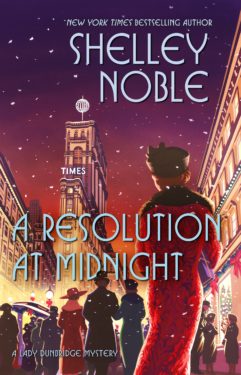 opens in a new windowA Resolution at Midnight by Shelley Noble – Champagne Truffles
opens in a new windowA Resolution at Midnight by Shelley Noble – Champagne Truffles opens in a new windowA Dog’s Perfect Christmas by W. Bruce Cameron – Peanut Butter Cookies
opens in a new windowA Dog’s Perfect Christmas by W. Bruce Cameron – Peanut Butter Cookies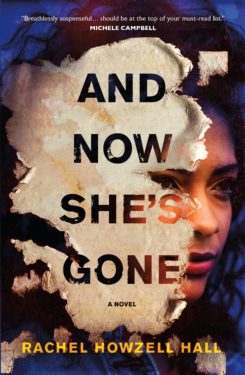 opens in a new windowAnd Now She’s Gone by Rachel Howzell Hall – Thumbprint Cookies
opens in a new windowAnd Now She’s Gone by Rachel Howzell Hall – Thumbprint Cookies opens in a new windowAn Irish Country Welcome by Patrick Taylor – Irish Shortbread Cookies
opens in a new windowAn Irish Country Welcome by Patrick Taylor – Irish Shortbread Cookies opens in a new windowSouth of the Buttonwood Tree by Heather Webber – Pecan Pie
opens in a new windowSouth of the Buttonwood Tree by Heather Webber – Pecan Pie
